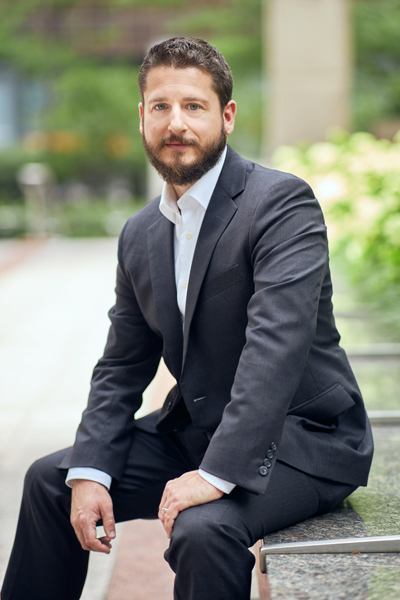Gerald Meyer is a storyteller. To him, the legal profession pivots around lawyers’ ability to tell a good story, to craft a cohesive narrative and persuade a judge or jury of the “right” answer. And as a partner at MoloLamken, a boutique-style law firm where Meyer immerses himself in each case, his talent for storytelling has led both him and the firm to success.
An English major in college, Meyer decided to apply to law school so he could employ his critical thinking and writing skills. And when he got to the University of Illinois College of Law, “it clicked right away,” he remembers. After graduating, Meyer completed two judicial clerkships and worked as an attorney for Skadden, Arps, Slate, Meagher & Flom and Affiliates. But as he advanced in his career, Meyer saw one of the “most important parts of being a litigator” being pushed to the wayside.

“You have to be able to tell a story that makes sense,” Meyer says. “You have to think about the narrative in terms of what the answer should be, and why, as well as how, you can make it engaging for your audience.”
Well versed in both federal- and state-level white-collar criminal law, Meyer emphasizes the value of those storytelling abilities. “Criminal cases have a human element,” he explains. “You’re telling an individual’s story, and that’s going to impact them on a very real level. As you take them through the legal process, you are telling their story, helping them, and advocating for them.”
White-collar criminal cases also involve a lot of complexity, Meyer says, which makes them particularly interesting for him. “Because there are a lot of moving parts, it takes a lot more work to craft a narrative,” he notes. “You have to consider what’s going on in each individual dispute and look at how various statutes can be interpreted.”
“Gerald reminds lawyers why they wanted to practice law in the first place,” says Cat Casey, chief innovation officer at DISCO. “His compassion and dedication to the pursuit of justice for his clients make him a formidable foe, as many have learned in the courtroom.”
In one of Meyer’s most memorable cases, which ultimately went to the Supreme Court, he represented the Islamic Republic of Iran. “It could have been very dry and uninteresting because it was essentially a statutory interpretation issue,” Meyer says. “But we made it compelling—we explained why the statute existed in the first place, where it came from, and what the words mean when actually applied.”
But whether you’re arguing a case in front of the Supreme Court or a local judge, Meyer urges his fellow attorneys to be careful about leading people toward the “right” answer. “It’s very easy to get locked into a position where you think it’s obvious you’re right. You think the judge will see it that way, too, but that’s often not the case,” Meyer advises. “Everyone has different experiences and got to where they are from different places, so not everybody is going to see things the way you see them.”
“You may go into a case knowing you’re unlikely to win, but you can still accomplish something at the end of the day, even if it’s just providing some resolution for the client.”
Not treating an outcome like it’s obvious is especially important when the outcome actually is obvious, Meyer says. “You may feel like the other side is making a stupid argument, like explaining why the earth is flat, but you still have to address their argument properly,” he points out. “You can’t just say, ‘That’s stupid.’ You have to break it down, state your position, and explain why their argument doesn’t make sense instead of just stating that it’s wrong.”
In addition to his regular work at MoloLamken, Meyer and his team take on a variety of pro bono cases, primarily criminal and civil rights cases. “It’s important to me and should be very important to everyone who practices law,” Meyer asserts. “We all became lawyers because we have faith in the system, but there’s an idea out there that if you have enough money, you can buy the verdicts you want. If we want the system to stay respected, we have to put in the effort to keep it that way.”
In the spring of 2018, Meyer took on a particularly meaningful pro bono case. “We were helping a man who had been incarcerated. During his time in the facility, he had received some bad treatments that resulted in him losing a couple teeth,” Meyer recalls. “He couldn’t go and choose a dentist; he had to use who the prison provided. It was really frustrating for him.”
While Meyer didn’t ultimately get the verdict he was hoping for, he was nevertheless pleased that he had been able to advocate for the client and make sure that his story was heard. “At the end of the day, what happened to him may have been within the law, but the negative results he experienced were still acknowledged,” Meyer states. And that’s exactly what Meyer prioritizes in his everyday work at MoloLamken: “You may go into a case knowing you’re unlikely to win, but you can still accomplish something at the end of the day, even if it’s just providing some resolution for the client.”


